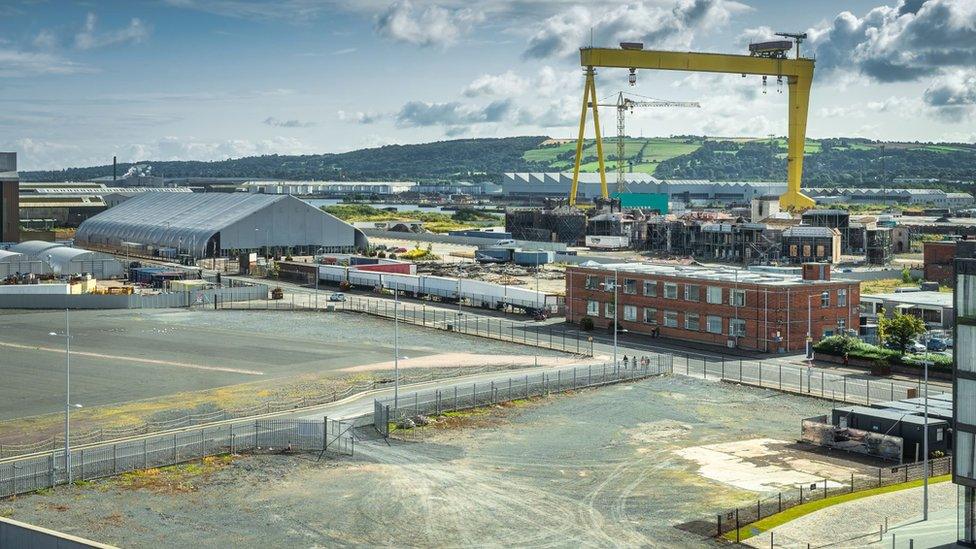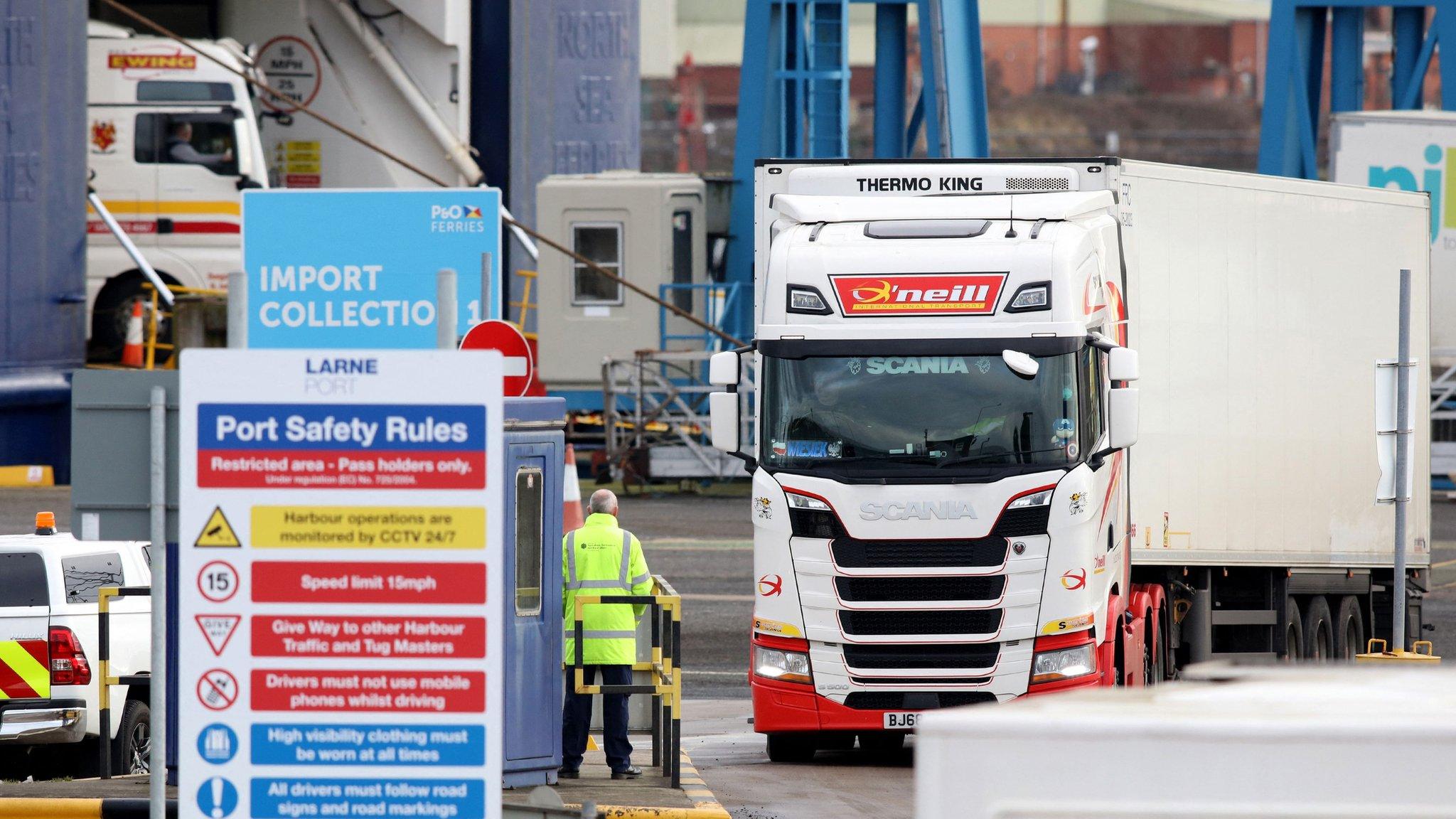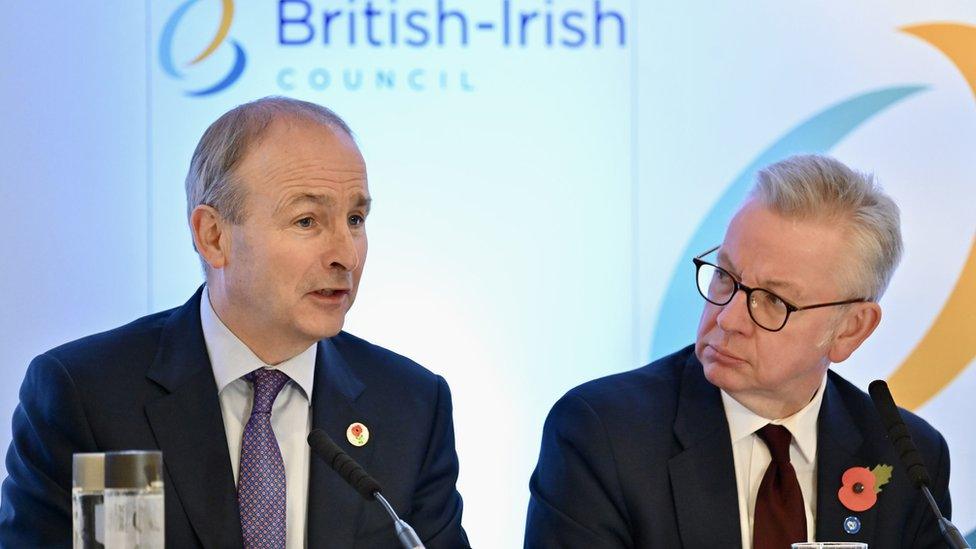NI Protocol: Businesses question government's plans
- Published
- comments

A consortium of business organisations has asked the UK government dozens of questions about how the replacement for the NI Protocol will work in practice.
The protocol is the post-Brexit trading deal agreed by the UK and the EU.
The UK plans to override most of the agreement if the EU does not agree to changes.
The questions from the NI Business Brexit Working Group suggest it is still unclear how UK unilateral measures would work on the ground.
'Misunderstandings'
It has called on the UK and EU to have businesses in Northern Ireland deeply involved in technical talks, warning that without that role there is a risk of "misunderstandings and contradictions…resulting in further delay and controversy".
The protocol keeps Northern Ireland inside the EU's single market for goods, preventing checks on items at the Irish border and giving Northern Ireland manufacturers preferential access to the EU.
It also means there are checks and controls on goods entering Northern Ireland from Great Britain, leading to added cost and complexity for importing businesses.
What changes are being proposed?
The UK government says the protocol is not working and needs to be changed, preferably by negotiation.
It is also proceeding with legislation, the Protocol Bill, which would see the UK make unilateral changes.
The changes it is proposing include the concept of green lanes and red lanes.
Trusted traders would use a green lane for GB goods that are destined only for Northern Ireland, meaning that would not need to be checked and would have minimal paperwork.
Goods destined to travel onwards to the Republic of Ireland would enter via a red lane, where they would be subject to standard EU controls and checks.
Alongside that is a plan for a dual regulatory regime, which would mean goods made to either EU or UK standard could be sold in Northern Ireland.
The bill is essentially a framework to empower the government to act, with the substance of these plans to be worked out later.
The working group, whose members include the CBI, NI Chamber of Commerce and Ulster Farmers' Union have posed their questions in a consultation on the bill.
'Trusted traders'
They focus most of their queries on how the green lane and trusted trader concepts will work.
For example they want to know if the NI customer, the GB supplier, the haulier or all three would need to be a "trusted trader" for the purposes of the green lane.
They have also asked if goods which have not been definitively categorised as staying in NI would by default have to use red lane procedures.
There is also a pointed question on the dual regulatory regime which asks the government to confirm "whether there are any international precedents for introducing a full dual regulatory regime of similar size and scale with an open land border which it is using to inform its decision making?"
It's understood the government has engaged at length on the issues raised but no firm commitments have been given on how implementation will work.
The working group also reiterates its view that the floor for any new agreement is the existing standstill arrangements and grace periods - not full implementation of the protocol.
Related topics
- Published2 February 2024

- Published14 November 2022

- Published11 November 2022
